Photos: New/Old Appearance + Christina’s House Stills
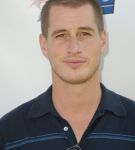
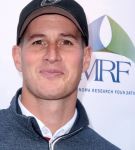
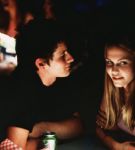
Gallery Links —
09-15-08 – AMPTV’s 9th Annual Celebrity Golf Classic



Gallery Links —
09-15-08 – AMPTV’s 9th Annual Celebrity Golf Classic


Gallery Links —
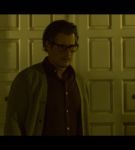
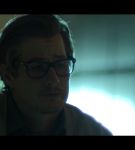
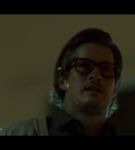
Gallery Links —
Captive [UHQ Untagged] Screencaps
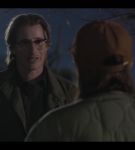
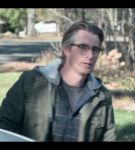
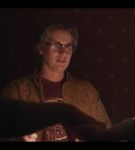
Gallery Links —
The Amityville Curse [UHQ Untagged] Screencaps
The trailer for ‘The Amityville Curse’ is here. You can watch it below. ‘The Amityville Curse’ premires on Tubi next Sunday May 28th.
(No Screencaps for the trailer because Brendan is blink and you miss him).
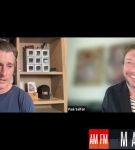


TV Appearances > Interviews > Screen Caotures [UHQ]
BC: What intrigued you about The Best Man?
Fehr: Work’s always intriguing [laughs], first and foremost. The cast with Luke Wilson, Dolph [Lundgren], I knew Scout Taylor Compton from earlier, so that would be a lot of fun. Ultimately, I get joy out of being on set and trying to create a character, have fun, and learn along the way. It’s funny; having been in the industry for almost 30 years, you take movies and television for granted. Not so much as an actor, but people don’t realize what it takes to complete something, whether it’s a masterpiece or not good enough to go straight to video. To get people together, have a script, gather all those people, and be able to tell a story and put it on film with everything, it is a miracle anything gets done. I realized that doing some of my own projects and you don’t know if it’s going to be around forever. I’m super appreciative. You always try to pick great projects with great people, but I love acting, the beat on set, collaborating with people and talking about it. You do your thing, and then you get your fingers crossed as to how it turns out in the end because you have no control over that.
How do you break down the set that Shane ran?
We shot this movie in ten days, which is bananas. It’s crazy. Given what we were working with, we’re in one location, which is a casino, which makes it a lot easier. Given that you’re shooting in ten days, it’s run, run, run, and you got to know your lines and be on your marks because there’s not enough time to “play around with the scene.” You got to shoot it and get out. We knew that going in, and that didn’t surprise anyone. What you try to do is not that it’s chaos, it was well run, and no one’s run around like a chicken with their head cut off. There is a sense of urgency to getting what you need to get done for that day. What I tried to do is, with that sense of urgency, let that play into the character, scenes, and everything else while hoping that works.
How do stunts work in this indie action film? Does it become more simplified? Is there much time to rehearse?
On this one, there were no rehearsals beforehand. The stunt coordinators got it all figured out, and you learn it on the day right before you shoot the scene. I’ve done at least one fight movie where I fought quite a lot and then on night shift, there is a couple of scenes where we fought. I had some MMA matches as well. The way I found that was effective to learn to fight scenes on short notice is basically like a phone number, you learn three moves at a time. You learn the first three moves; you get those down. This is what we’re doing, and this is the dance. When you get those, you learn the next three. When you get that, you put them together. Once you have got the six, we’re going to add another three. You figured that out and tack it on. Learning it kind of three moves at a time simplifies it a little bit. Sometimes it’s four depending on how it’s choreographed. Essentially learning it in bits and pieces and then putting those together helps.
There’s a reason the phone number is divided up that way. If you just put ten digits together, the brain doesn’t compute it the same way as, going three, three, and four. That’s the way I approach to fight scenes on short notice. We learned them on the day. There wasn’t a lot of prep for this, unfortunately, to go over any of that stuff, which is the norm these days for movies. Back in the day, using film was so expensive that everyone had to be prepared. Everyone got their rehearsal, the sound got the rehearsal, everybody. Everything was set up in such a way. As great as digital is press the button, it doesn’t matter. You’re not wasting any film or anything. What it’s done a little bit is everyone goes like, “We don’t have to rehearse. We don’t have to be as prepared, because we’re putting it on a hard drive and not this expensive film that you have to go expose and figure out. A little off-topic is the fact that digital has changed the way sets run a lot of times and what producers expect. Like I said if you asked anybody 15 years ago to shoot a movie in ten days, they would have laughed. It would have been ridiculous. Now it’s becoming the norm.
What did Dolph Lundgren bring to the set as an action star presence?
I let the stunt coordinators with this amount of time do their thing since we’re not having rehearsals knowing you got to get the scene done. These coordinators figured it out so unless something feels wrong or off, you go with that plan and make a few suggestions here and there based on some ideas. With a guy like Dolph, he’s done a lot of them, and he’s got his ideas as well. What’s funny is, we have these group scenes together, but Dolph and I never interact in the movie, and I don’t say a word to him. We only get together at the conclusion of the whole thing. I didn’t get to spend a ton of time with Dolph or even Luke. We shot those scenes over the course of two days, then the rest of my time was spent with Scout Taylor Compton, and we’re a couple in this film. That was a lot of fun because we spent a lot of time together in between setups, dinners, and lunches talking about what we could do. She was collaborative, which is what you want with an acting partner. It was good that we got along so well, and we buoyed each other in the chaos of it all.
Given the 10-day shoot, was there a particular aspect of production that took more time than expected, or was it ebb and flow to it?
As far as I know, it went as a 10-day shoot does, it’s run and gun. Action scenes always take a little bit longer than two people talking across the table. The scenes where you got two or three talking heads, that’s where you make up time for all the action sequences, because you’ve got to do safety meetings, so no one gets hurt. It’s impressive between the production, actors, and crew that it all got done in that amount of time.
Written by Taylor, Daniel Zirilli, and C. Alec Rossel, The Best Man also stars Nicky Whelan and Scott Martin. The film comes to theaters, on-demand and digital, on April 21st. (source)
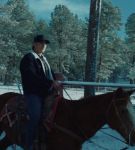
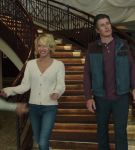
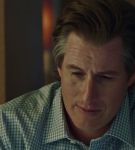
Movies > 2022 – The Best Man > Screen Caotures [UHQ]
The Best Man is a tight action-thriller that takes the single-location structure made iconic by the incredibly quotable Die Hard and brings it to a sunny resort. Directed and co-written by Shane Dax Taylor, The Best Man tells the story of a group of former Special Ops soldiers who must fight back once the wedding they’re attending is crashed and taken over by mercenaries. The film is Shane Dax Taylor’s first foray into action filmmaking and is in part a love letter to the iconic action films of the 1980s.
Much of the story of The Best Man is told through the journey of Bradley, played by Brendan Fehr. Fehr is a film and television actor with a long career that stretches back to his star-making turn as Michael Guerin in the WB series Roswell. A veteran of action projects, Fehr brings plenty of gravitas to his role, whether in fight sequences or alongside his co-stars, who include Luke Wilson, Dolph Lundgren, and Scout Taylor-Compton.
Screen Rant: It was your co-star Luke Wilson’s first action film, and your director’s first action film as well. Was there anything special about the environment on set because you were working with people who got the opportunity to explore something new?
Brendan Fehr: I suppose that would be a question for them. I’ve done some action stuff. It’s funny; you have certain expectations going into any project, whether it’s because of the script, the people, whoever’s directing it, or whoever you’re co-starring with, or starring with. I was looking forward to working with Luke and seeing how that went, but I think what everybody knew was, looking at the day out of days and how much time we had to shoot it, that it was going to be run and gun; both on the screen and in real life. It was a pretty short shoot, and with something like that, you’ve just got to be on point. You’ve got to be open to anything; things are kind of changing on the fly. Every set has a certain amount of chaos, which is why, I think, people enjoy it, as long as there’s not too much. You kind of just embrace the chaos of it all, and you use it in the scenes.
You’re also doing a lot of action work on your own in this. What was the hardest aspect of shooting this film? Was it those fight scenes, or was it more about trying to get everything done in the amount of time that you had?
Brendan Fehr: I try not to focus on time. When people are rushing or going, “We only have this,” [I’m like,] “That’s not my problem, it’s your problem. You figure it out. I’ll help if I can.” My job as an actor is obviously to create a character and establish relationships in the film. I’ve still got a producer/director ear, [thinking], like, “Oh, is that what you guys are doing? Okay, sure,” on every project, but I’ve learned to kind of let that go. I have a job there as an actor, and I’m not good enough to not focus on my own [work]. As much as I hear, [I] just kind of push it aside and go, “How do I bring this character to life?” Given all your resources, whether it’s another actor, the script, the time, the weather conditions, or whatever they may be at the time, [it’s] like, “What do I want to do? What do I want to accomplish in the scene, and with the character, and with the other actors and characters in the script?” In this one, most of my scenes are with Scout Taylor-Compton. We had done a small little project before that’s not out. I had a small role in it, and I could tell that she was open, collaborative, creative, and easy to work with. We were always talking about bringing this relationship to life and elevating it as much as we can, and making it fun for us. If the actors are having fun, a lot of times the audience will [while] watching them as well. We were always thinking and talking and throwing ideas against the wall as much as we could.
Was there something specific about your character Bradley that was the easiest to relate to?
Brendan Fehr: Spoiler alert coming up. He states in the movie that the reason he went on the mission was because he never thought he would come back. That was really interesting; someone who has survived something they didn’t expect to or didn’t want. That’s a great jumping-off point to start pulling a character apart and figuring out what makes them work, and the stuff about them that doesn’t work, and why it doesn’t work.That gave me a lot of ‘ins’ to him. Obviously, Bradley’s in a darker place, especially at the beginning of the movie. My buddy Tim Busfield would be like, “‘Mood’ spelled backwards is ‘Doom’.”, It always sticks with me where I’m just like, “You can be in a dark place, but it’s still got to be filled.” It’s that thing of, like, when you’re acting bored, you don’t do nothing. When you’re bored, your mind is racing. You’re thinking about, “How can I not be bored? But I am bored.” There’s actually so much activity in a board person. This guy’s a little quiet and reserved in the beginning, and doesn’t want to say a lot, and would be the guy leaning against the wall in the bar, probably, at this point in his life. You still want to make that as active as possible, so you just focus on that. Then you watch the end product and you go, “Did I do it? How close did I get to my objective?”
I know your director loves things like Die Hard and early Sylvester Stallone action films. When you’re doing something like this, do you look back to other things in the genre, or are you more focused on your own work?
Brendan Fehr: Yeah, I think you’re certainly aware of that. I can come up with comps to my character in terms of other actors and characters in other movies, but you always want to be careful of not trying to copy something, because it’s going to feel like you’re copying something. [In] stealing inspiration from something, or even stealing some things from something, there has to be a point where you make it your own, or else it’s just going to look really inauthentic. I still watch movies. I still watch television. I am so inundated with other people’s performances and everything else that those will automatically creep out in a performance. That’s why a lot of things just kind of feel the same and done over and over again in a lot of movies these days; they’re just going like, “Let’s make that again.” It’s just like, “Well, we made it. Why don’t we try to make something different?” In this, my whole job [was] to just make that particular character as different as I can or as unique as I can, given the script and everything else. But you do look for inspiration; you ultimately want to go, like, “If we can be compared to that movie, [or] be in that class of a movie, that would be great.” That’s the goal, so you set out for goals that way. But then, it really is a miracle that any movie gets done. Given what it takes to put a movie together from start to finish, it seems impossible. It’s hard. It’s really hard. You put your best foot forward, and you have a lot of fun, and then you cross your fingers that people like it.
You’ve been a part of so many great projects; we love Roswell over here. Given the opportunity, is there something that you’ve done in the past that you would love to return to in some way?
Brendan Fehr: I’m kind of doing it now. Speaking of Roswell, me and my co-star Majandra Delfino really enjoyed working together. We’ve had our ups and downs throughout the years, but now we’re really, really good pals. We put together a project called Baron and Toluca. That was one where it wasn’t so much the concept of Roswell; we love that aspect of it, alien sci-fi and all that stuff, but it was more about finding a vehicle for us because me and her have such a great chemistry. It doesn’t come along every day, it’s not that easy with a lot of people, and so that’s something that we thought we could take advantage of. [With] Baron and Toluca, we shot the pilot, or the first two episodes, however you want to view it, and that was quite the experience. I love acting, but I also directed it, and I was like, “I would love to get more into that.” I’m not a control freak, but I do like to have some, and so I got a little bit more there. Then, you do get to make your own thing, and the only person to blame in the end is you. [Then], you’re not the actor going, “I don’t know, they edited it in a crappy way,” or “The director didn’t even know what he was doing.” [With] this one, I’m the idiot director. [I learned] a lot doing it, and it was a lot of fun. That’s something that was just really satisfying, and an opportunity that I would love to be able to have another crack at in some way, shape, or form.